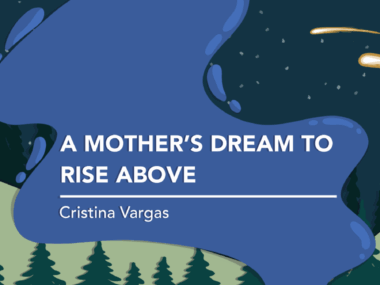For Many Rare Disease Families, Self-isolation Is Nothing New
Written by |

We watched from the dock as sunlight danced on the lake’s surface — a balletic performance for a small but captive audience of one in the quiet cove. Though still a few hours shy of lunch, the day was already hot. We both wore bathing suits, but my sister, Taylor, couldn’t go in the water.
For most of 2008, including that June day on Virginia’s Smith Mountain Lake, Taylor took CellCept (mycophenolate mofetil), a drug still commonly prescribed for patients who have received a kidney, heart, or liver transplant.
But Taylor hadn’t received a solid organ transplant. Instead, on a much colder morning in an Oregon hospital six months earlier, she’d become the sixth and final patient in the biopharmaceutical company StemCells’ historic Phase 1 clinical trial for infantile or late infantile Batten disease. For one year following stem cell transplantation, children received CellCept to suppress their immune systems and prevent their bodies from rejecting the donor cells.
Sometimes — especially during cold and flu season — immunosuppression scared us more than potential problems with the stem cells it was designed to protect. Taylor returned to school seven weeks after the surgery, but if she contracted an otherwise minor illness, she could suffer serious complications. And swimming in a lake, even the startlingly clear water at the base of Smith Mountain, was absolutely off-limits.
Though the transplant didn’t save my sister (she died more than a decade later, in 2018), the donor cells and powerful course of immunosuppression that followed felt like small potatoes later, when Batten disease really took hold. During her last difficult year, Taylor was medically fragile, with few defenses for ailments her family and friends could take in stride. I won’t forget how much my parents feared that intractable seizures would force Taylor into a hospital admission at the height of flu season.
Such is life for so many patients and families battling Batten disease and other rare diseases. Now, with the coronavirus sweeping across the globe, entire nations are experiencing extreme versions of social distancing, self-quarantine measures, and fear of infection that many rare disease families know all too well.
One famous example is Eliza O’Neill, who became the face of Sanfilippo syndrome, and her family’s self-imposed 726-day isolation. The flip side of my family’s stem cell story, the O’Neills self-quarantined to protect Eliza from contracting a harmless virus (AAV9, a vector used to deliver gene therapy), which could have excluded her from an upcoming clinical trial.
They ordered supplies for delivery and leaned on friends and families to help with errands. Eliza’s father worked remotely, while her mother stopped working. The children used online learning tools to keep up with their schoolwork. The strategy worked: In 2016, Eliza became the first U.S. patient to receive the experimental gene therapy treatment.
Whether you call it social distancing, self-quarantine, or personal hell, these measures are critical today to help stop the spread of COVID-19 and protect the most vulnerable among us — from elderly grandparents to young children with serious illnesses. For my part, I’m running mostly alone, working from home (our office is closed), and avoiding public places as much as I can. I’m not stockpiling toilet paper, but I’m buying the supplies my family needs and cleaning surfaces even more often than usual.
Once upon a time, my sister had to accept that she couldn’t swim in the lake with her siblings and cousins, just as Eliza O’Neill later missed out on making memories of her own. In each case, their sacrifice opened a door to a potential treatment and hope for the future. And now, our global commitment to doing the right thing is the best defense we ALL have against a novel enemy.
***
Note: Batten Disease News is strictly a news and information website about the disease. It does not provide medical advice, diagnosis, or treatment. This content is not intended to be a substitute for professional medical advice, diagnosis, or treatment. Always seek the advice of your physician or other qualified health provider with any questions you may have regarding a medical condition. Never disregard professional medical advice or delay in seeking it because of something you have read on this website. The opinions expressed in this column are not those of Batten Disease News or its parent company, Bionews Services, and are intended to spark discussion about issues pertaining to Batten disease.





Leave a comment
Fill in the required fields to post. Your email address will not be published.